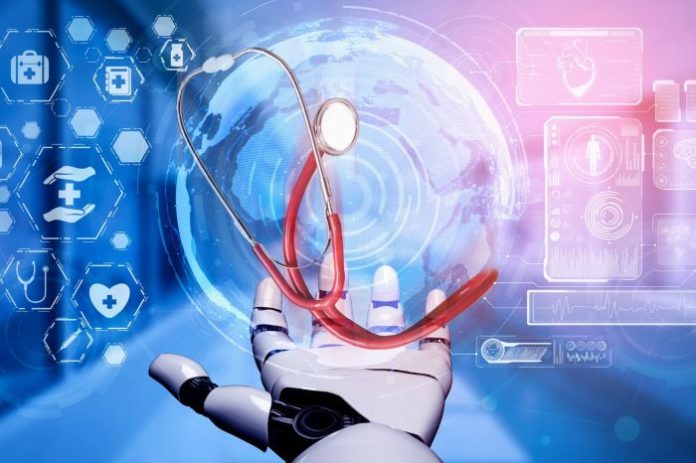Digital transformation in healthcare is no longer a distant vision; it’s happening right now. Artificial Intelligence is at the core of this shift, driving the next wave of innovation and reshaping how hospitals, clinics, and even home care providers deliver services, including initiatives similar to a hospital admission risk management program that focuses on early intervention and prevention. As someone who has worked closely with healthcare technology teams, I’ve seen firsthand how the right AI tools can improve efficiency, accuracy, and even patient satisfaction.
But to fully understand this transformation, we need to explore what healthcare AI really means, how it’s applied, and what challenges still lie ahead.
Key Takeaways
- Digital transformation in healthcare, driven by AI, improves efficiency and patient satisfaction.
- Healthcare AI involves algorithms for tasks like pattern recognition and predictive modeling.
- AI enhances diagnostics, creates personalized treatment plans, and boosts operational efficiency.
- Challenges include data privacy, bias in training datasets, and the need for human oversight.
- The next wave of AI in healthcare promises virtual hospitals and AI-guided surgeries, enhancing patient-centered care.
Table of Contents
What Healthcare AI Really Is
When we talk about healthcare AI, we’re not just describing futuristic robots. Instead, it’s about software and algorithms designed to perform tasks that normally require human intelligence, pattern recognition, decision-making, and predictive modeling. In practice, this can mean:
- AI models are scanning medical images for early signs of cancer.
- Predictive analytics helps doctors anticipate patient deterioration.
- Natural language processing (NLP) systems are turning physician notes into structured records.
The ultimate goal isn’t to replace medical professionals, but to support them with more precise tools in the next wave of AI technology. In fact, doctors who embrace AI often find they spend less time on paperwork and more time face-to-face with patients.
Where AI Is Already Making a Difference
1. Diagnostics and Imaging
Radiology and pathology are two fields where AI is already proving its worth. Systems trained on millions of medical images can identify subtle patterns that even the most experienced professionals might miss. For example, AI-supported mammography screening has been shown to reduce false positives, sparing patients from unnecessary stress and procedures.
2. Personalized Treatment Plans
Genomics data combined with AI is allowing physicians to create therapies tailored to the individual. Instead of “one size fits all,” treatment plans can now factor in genetic risk, lifestyle, and environmental influences. This is especially promising in oncology and rare diseases.
3. Operational Efficiency
Hospitals face constant pressure to do more with limited resources. AI can optimize scheduling, predict patient inflows, and streamline inventory management for pharmaceuticals and medical supplies. Even small improvements in these areas can save millions annually.
Challenges and Ethical Questions with the Next Wave of AI
Of course, the rise of healthcare AI doesn’t come without challenges. Data privacy remains the biggest concern; medical records are among the most sensitive pieces of information a person can have. AI systems must comply with regulations such as HIPAA in the U.S. or GDPR in Europe.
Another issue is bias. If an AI system is trained on non-diverse datasets, its predictions may not be reliable across different populations. Addressing this requires both technical adjustments and stronger collaboration between technology providers and healthcare institutions.
Finally, there’s the human factor. Many professionals worry that AI could reduce the importance of human judgment. From my experience, the most successful deployments happen when AI is approached as a governance challenge rather than just a technical upgrade. When it’s seen as an assistant, not a replacement. Training programs for clinicians are essential so they can trust and properly interpret AI-generated insights.
Practical Benefits for Patients
The most important perspective is the patient’s. For individuals, AI often shows up in subtle ways:
- Shorter waiting times: AI-driven triage tools can direct patients to the right department faster.
- More accurate diagnoses: Image recognition and predictive algorithms mean fewer misdiagnoses.
- Better continuity of care: Smart reminders, AI chatbots, and digital health assistants keep patients engaged in their own treatment.
From the patient’s side, these improvements in the next wave of healthcare breakthroughs mean healthcare feels more personal and less bureaucratic. That, in turn, increases trust and adherence to treatments.
Future Horizons of AI in Healthcare
Looking ahead, AI is set to become even more deeply integrated into health systems:
- Virtual hospitals may rely heavily on AI to manage remote monitoring, with real doctors stepping in only when intervention is needed.
- Robotics in surgery will use AI-guided precision to reduce human error.
- Population health management powered by AI could help governments allocate resources more effectively and anticipate public health crises.
As AI becomes more common, regulation and transparency will be vital. Patients need to understand when AI is being used in their care and what it means for their health outcomes.
The Business Perspective
Healthcare organizations that successfully integrate AI gain more than efficiency-they position themselves as industry leaders. Coordinating arrivals and directing foot traffic is easier with Queue management software by WaitWell to manage check-ins and peak times. Investors, policymakers, and even insurers are closely watching which hospitals adopt these technologies early. From a financial standpoint, the ROI is becoming clear: fewer readmissions, more optimized staffing, and better patient outcomes all lead to cost savings.
But digital transformation isn’t only about big hospitals. Smaller clinics and private practices can also benefit by adopting scalable AI tools, whether for billing automation, appointment scheduling, or clinical support.
Final Thoughts
The next wave of digital transformation in healthcare will be driven by AI, but its success will depend on careful integration, ethical safeguards, and strong collaboration between technology providers and medical professionals. What’s clear is that healthcare AI is not a passing trend-it’s becoming the foundation for smarter, more efficient, and more patient-centered care.
And while healthcare is the focus here, digital innovation is spreading across industries in the next wave of AI tech. Just as hospitals use AI to improve outcomes, creative sectors embrace technology for entertainment, personalization, and engagement. For example, gaming platforms are evolving quickly-projects such as Yanina Games show how digital tools can transform user experiences in entirely different fields. It’s another reminder that AI is not limited to one industry-it’s reshaping them all.











